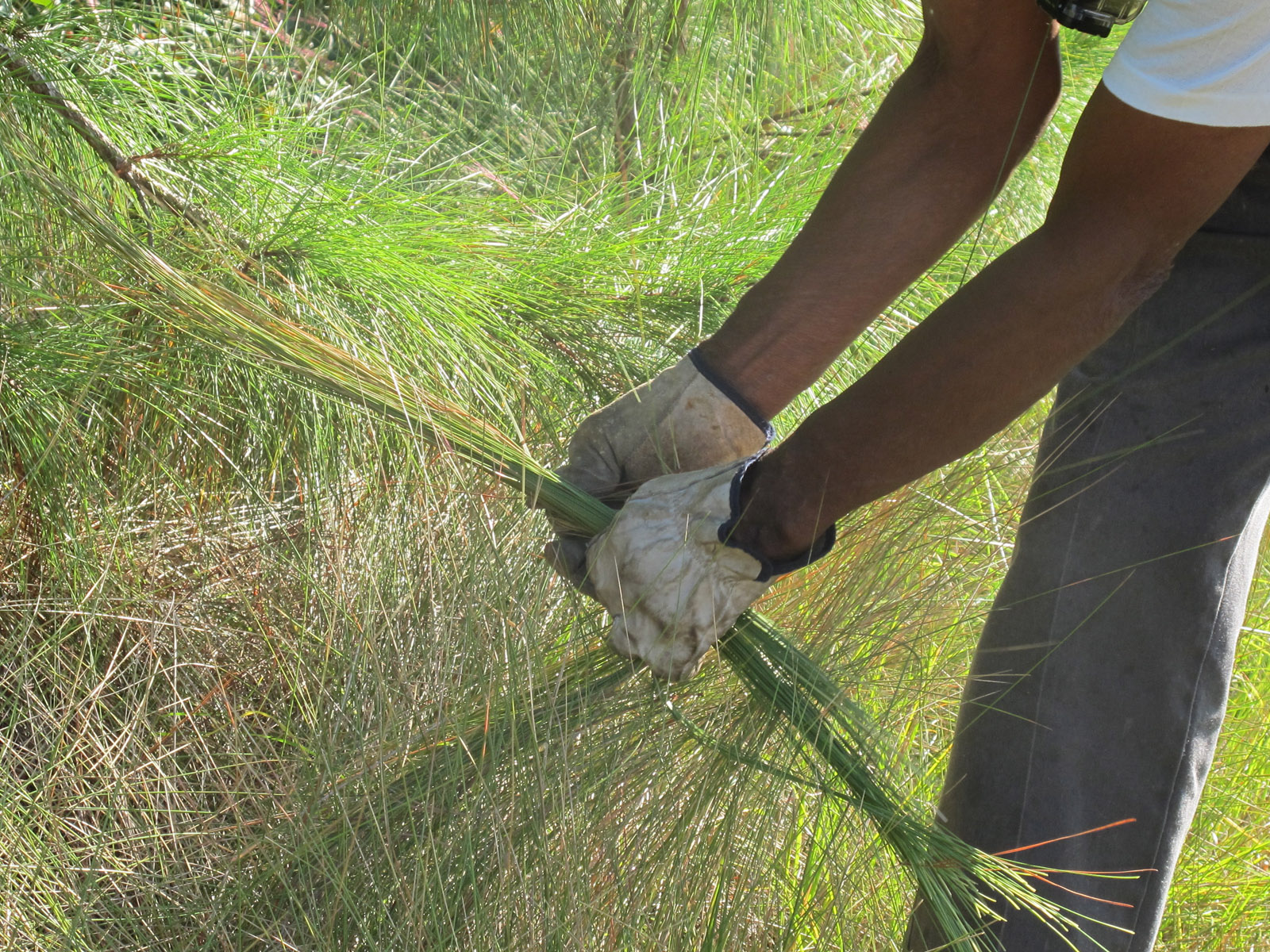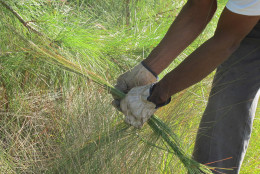



WASHINGTON – A native North American grass long used for basket weaving and thought to keep bugs at bay could be the source for the next generation of insect spray.
New government research finds that chemicals in the oils of sweetgrass are just as effective at repelling mosquitoes as DEET, the standard component of most topical bug sprays, according to the American Chemical Society.
Researchers with the U.S. Department of Agriculture and two universities, working on a grant from the Defense Department, found that the sweetgrass oil contained two chemical compounds already known for their repellent properties: coumarin and phytol.
There have been anecdotal reports from basket weavers that while harvesting sweetgrass, insects didn’t bother them. There is also evidence that some Native American tribes may have used fragrant sweetgrass in their homes or even wore it in ropes, possibly to keep mosquitoes and other pests away.
“We were able to find constituents that are known to act as insect repellents in a folk remedy, and now we understand that there’s a real scientific basis to this folklore,” says researcher Charles Cantrell in a statement.
Although some chemical-alternative repellents are commercially available, such as Bite Blocker, there is always a need to find newer, more effective repellents, says WTOP Garden Editor Mike McGrath.
More than protecting campers and gardeners from the itchy welts, repellents offer disease protection too. Mosquitoes transmit serious diseases such as malaria, West Nile virus, La Crosse encephalitis and yellow fever.
“This is a whole new source. The concept of a perennial grass being able to produce a viable inspect repellent is very exciting because first of all it brings a new player onto the scene. Over time, insects get used to almost anything. So we are most protected when we can change it up and move from repellent to repellent,” McGrath says.
McGrath says the finding is important for another reason: The U.S. military, which developed DEET in the 1940s, is looking for an alternative product.
“Apparently even the military realizes you don’t want to rub pesticide on your face and arms all the time, especially if there is a great natural alternative like this,” says McGrath, who has long advocated for natural and organic gardening.
Despite concerns about the use of DEET, a 2014 review by the U.S. Environmental Protection Agency found that DEET remains safe for use on skin and continues to be an effective way to repel ticks, which carry Lyme disease, as well as disease-carrying mosquitoes. The chemical doesn’t kill insects but prevents them from biting.
Up to 120 products currently use the compound, the EPA says.
Growing protection
Sweetgrass grows quickly and can be harvested several times per year, and it could be cultivated to provide enough material for use in a commercial product someday, McGrath says.
But in the meantime, gardeners can easily add it to their own yards and rub the fresh leaves on their skin to provide an effective and safe natural shield from insect bites, McGrath says.
Although sweetgrass has a vanilla-like scent, other plants that have natural lemon scents, such as lemon geraniums, lemon thyme and lemon balm, also offer similar protection from biting insects. Just rub freshly picked, crushed leaves on the skin for a fragrant repellent, he says.
McGrath cautions against using homemade distilled oils to repel insects. Natural essential oils are meant to be diluted in some other carrier before they can be applied otherwise they will irritate the skin. And the wrong combination of scents could attract bugs, he says.
The presence of these plants in home gardens, however, won’t be sufficient to keep mosquitoes from invading yards and bothering children and pets, he says.







